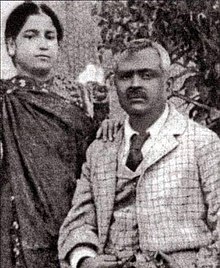By Fariha Ahmed
Begum Rokeya was the pioneer of female education in Bangladesh. Due to strides made in the early 20th century, Rokeya was able to unleash a wave of Muslim feminism in that nation.
Rokeya was born on December 9, 1880, in Pairaband, Rangpur. Her father was an affluent landlord who did not believe education was necessary for women. Rokeya learned Bengali and English with the support of her brothers, while hiding it from her father.
Rokeya got married when she was a teenager in the year 1898 to Shakawat Hossain. Fortunately, he was progressive and supported his wife’s educational aspirations. Her husband even saved extra money so that Rokeya could open a school one day. In 1909, she opened Shakawat Memorial Girls School, after her husband’s demise in Bhagalpur. She, however, could not continue there, and had to move her school to Calcutta.
Once there, the school had only eight students in the beginning. Rokeya had to persuade families to let their girls attend school despite social obstacles. She faced harsh criticism, yet she did not give up. This resilient feminist went door to door explaining to parents the importance of education for women. She had to organize transportation and ensure the safety of all of her students by herself.
Begum Rokeya was also a writer, and used her writing skills to draw awareness to gender inequality. In her writing, she urged people not to use religion to hold women back, and emphasized equality of the genders. Her best works are ‘Pipasha’ (thirst for knowledge), ‘Abarad Bashini’ (The Secluded Women) and ‘Sultana’s Dream,’ which is a feminist utopia. Her works led women to wake up and protest against injustice. Her spearheading a women’s movement caused women to break away from old stereotypes, as more females started pursuing education. In 1916, she founded the Muslim Women’s Society, an organization protecting women’s civil rights.
Rokeya died on December 9 in Calcutta at the age of 52. Begum Rokeya University was named in honor of her at her birthplace, Rangpur. Her legacy will live forever after having paved the road for Muslim feminism.




